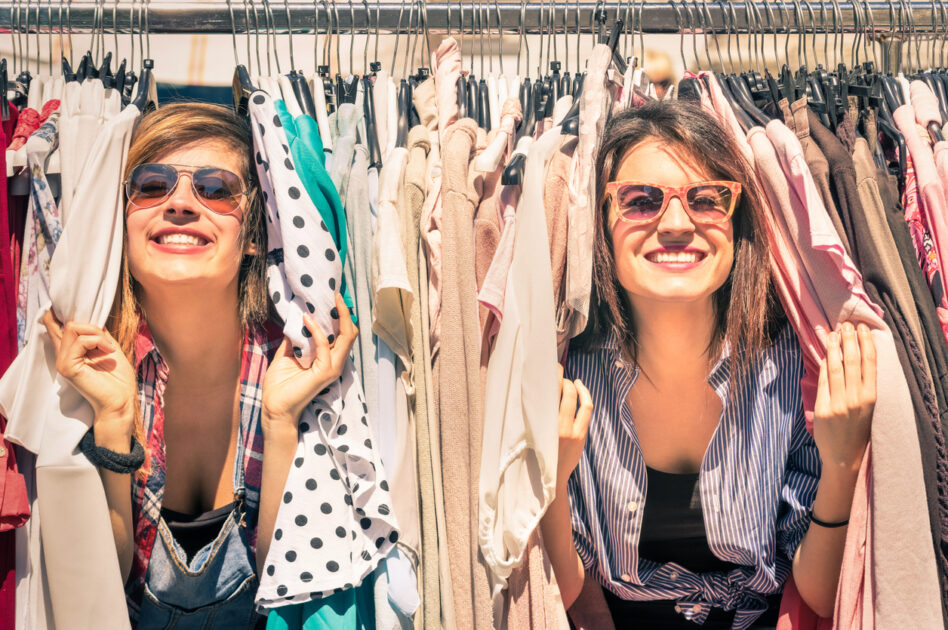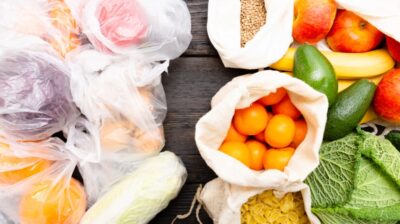How to make your wardrobe more environmentally friendly
From your debs dress to everyday clothes, these simple steps can make your wardrobe ethical

Clothes reflect personality and look great but they can also be so much more than that. What you wear can make a difference to the environment and to the lives of garment workers all around the world. So, when you are thinking of buying a beautiful Debs dress, bear the following in mind.
Why do clothes matter?
- Clothes making can be a shady business! There can be social and environmental consequences at each stage of clothing production. The materials that make up the clothes may come from GM crops and be sprayed with pesticides; slave or child labour may be used to make the garments; dangerous chemicals may be used throughout; and when the clothes are discarded, they may be thrown out and live in landfills, instead of being recycled.
- Cheap clothes often mean cheap labour. Usually, the employees who make cheap clothes are paid a pittance, which is not enough for a living wage. A living wage is a wage that covers the basics a family needs such as a clean and safe home, food, water, clothing, education, transportation and health care. It is all too common for garment workers to live in abject poverty and to be unable to provide these necessities for themselves and their families.
- We waste so much clothing! The low cost of clothing nowadays means that people buy more clothing than they did in previous generations. This leads to more waste and environmental pollution. Also, cheap clothing does not last very long, leading to buying more clothes and yet more waste. Bad for our wallets and the Earth.
- High heels and carbon footprints! 80% of the carbon footprint of clothing comes from what you do with the garment after you buy it. This includes how you wash it, what detergent you use, if you dry-clean it etc. So how you care for your clothes may actually increase or decrease global warming.
- 100% unnatural! Many fibres used nowadays are made from by-products of the oil industry. They cannot be recycled and therefore end up in landfills.
- What does this have to do with Debs dresses? Well, there are ways to get a stunning Debs dress, without compromising on ethics.
How to find/make Debs dresses with heart and soul:
- Get a dress made or re-make an old one. That way you can choose the material, you are supporting local industries and you know that the person who makes it has proper working conditions.
- Buy local from a boutique rather than a department store. A boutique will often have Irish designer’s work on sale. These dresses will have been made in Ireland and the workers will have gotten a decent wage.
- Scour thrift or charity shops. You may find a really cute vintage dress.
- Make your own. If you are handy with a sewing needle, why not give it a go? It will be totally unique, and you can control the materials and production methods.
- Grill ‘em! Contact shops and manufacturers of Debs dresses and ask them about their dresses. Is the material ethically sourced, are the workers well paid or are they signed up to The Ethical Trading Initiative? If not, ask them why not? Will they be changing their policies anytime soon?
- Love the tree-huggers. Check out some of the ethical clothing lines endorsed by stars such as Emma Watson. You might be able to score an ordinary dress and jazz it up with accessories.
What else can you do?
- Think twice if you score super cheap bargains all the time. Cheap clothing is often made under poor working conditions.
- Wash your clothes at 30 degrees instead of 40 degrees.
- Line-dry your clothes instead of tumble drying.
- Buy non-iron clothes or hang your clothes dry to avoid having to iron. Judging by how much most people hate ironing; this shouldn’t be too difficult.
- Check your clothing materials. If you use cotton, it degrades naturally in five months, whereas nylon takes decades (30 to 40 years) to disintegrate.
- Instead of throwing out old clothes, bring them to a charity shop or hold a swap party. A swap party is basically a get together where you and your friends/relatives swap your unwanted clothes with one another. It’s fun and good for the environment.
- You might also like to check out Ireland’s first swop shop in Dublin.
- Learn how to sew/knit so you can alter your clothes. There are lots of ‘stitch & bitch’ clubs around the place now.





